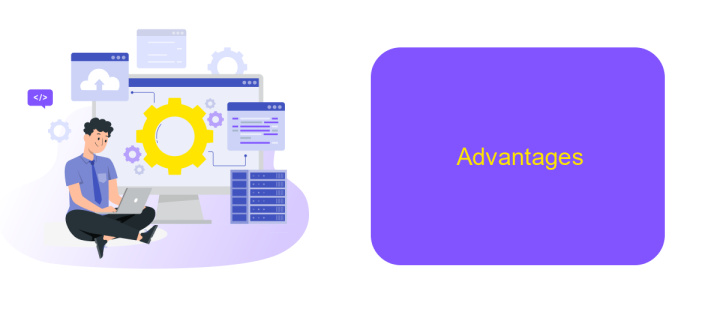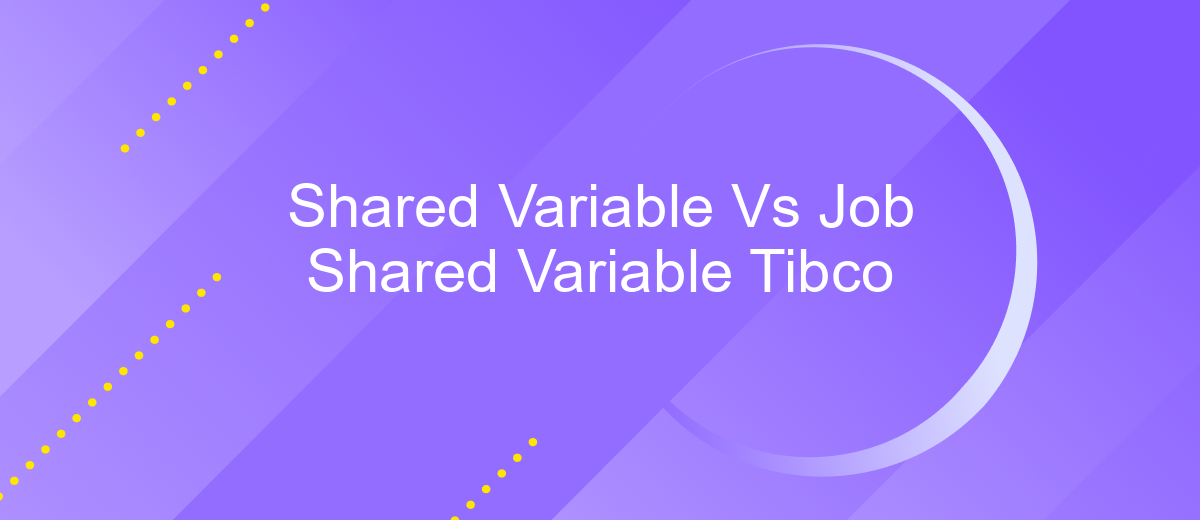Shared Variable Vs Job Shared Variable Tibco
In the realm of TIBCO BusinessWorks, understanding the distinction between Shared Variables and Job Shared Variables is crucial for efficient process management. Both types of variables play vital roles in data handling and process synchronization, yet they serve different purposes and have unique characteristics. This article delves into their differences, applications, and best practices to optimize your TIBCO workflows.
Shared Variable
Shared variables in TIBCO are used to store data that can be accessed by multiple processes or activities within a project. They provide a way to share information across different components, making it easier to manage and coordinate data flow. Shared variables are particularly useful in scenarios where data needs to be consistently available to various parts of an application.
- Global Accessibility: Shared variables can be accessed by any process within the same project.
- Data Consistency: Ensures that all processes have access to the same data values.
- Ease of Use: Simplifies the management of data flow between different components.
For those looking to streamline their integration processes, services like ApiX-Drive offer robust solutions. ApiX-Drive allows for seamless integration between various applications, ensuring that data is efficiently shared and synchronized. By leveraging such services, businesses can enhance their operational efficiency and maintain data consistency across multiple platforms.
Job Shared Variable

Job Shared Variable in TIBCO is a mechanism that allows different process instances within the same job to share data. This is particularly useful for scenarios where processes need to exchange information or maintain state throughout the lifecycle of a job. By using Job Shared Variables, developers can avoid the complexity of passing data through various process activities, thereby simplifying the design and improving maintainability.
One of the practical applications of Job Shared Variables is in integration scenarios. For instance, when configuring integrations using services like ApiX-Drive, Job Shared Variables can be utilized to store and manage data that needs to be accessed by multiple processes within the job. This ensures that data consistency is maintained without the need for redundant data transfers or complex data management logic. In essence, Job Shared Variables provide a streamlined approach to data handling in multi-process jobs, making the integration setup more efficient and reliable.
Comparison

When working with TIBCO, understanding the differences between Shared Variables and Job Shared Variables is crucial for efficient integration and service configuration. Both serve to store data, but their use cases and behaviors differ significantly.
- Scope: Shared Variables are accessible across multiple processes, whereas Job Shared Variables are confined to a single job instance.
- Concurrency: Shared Variables require careful management to avoid race conditions, while Job Shared Variables are inherently safer as they are isolated within a job.
- Persistence: Shared Variables can be persistent across multiple job executions, while Job Shared Variables are ephemeral and exist only for the duration of the job.
Choosing between these variables depends on your specific needs. For instance, if you require data to be shared across multiple processes, Shared Variables are the way to go. On the other hand, Job Shared Variables are ideal for data that is only relevant within a single job execution. For seamless integration and configuration, tools like ApiX-Drive can further enhance your workflow by automating data transfers and reducing manual effort.
Advantages

Shared variables and job shared variables in TIBCO provide distinct advantages that cater to different integration scenarios. Understanding their benefits can significantly enhance the efficiency and scalability of your integration solutions.
Shared variables are designed to maintain state information across multiple process instances. This makes them ideal for scenarios where data consistency and synchronization are crucial. On the other hand, job shared variables are scoped to a single job, ensuring that data is isolated and secure within that job's context.
- Data Consistency: Shared variables help maintain a consistent state across different processes.
- Isolation: Job shared variables ensure data security by isolating information within a single job.
- Flexibility: Both types of variables offer flexibility in managing state information based on the specific needs of your integration.
- Scalability: Proper use of these variables can enhance the scalability of your integration solutions.
Using tools like ApiX-Drive can further streamline the process of managing shared and job shared variables. ApiX-Drive offers seamless integration capabilities that simplify the configuration and maintenance of these variables, ensuring that your TIBCO environment remains efficient and robust.
Disadvantages
One of the main disadvantages of using Shared Variables in Tibco is the potential for concurrency issues. When multiple processes or threads attempt to access or modify the same shared variable simultaneously, it can lead to race conditions, data corruption, or unexpected behavior. This makes it crucial to implement proper synchronization mechanisms, which can complicate the design and maintenance of your integration solutions.
Another drawback is the limited scope and flexibility of Shared Variables compared to Job Shared Variables. Shared Variables are accessible across the entire application, which can lead to unintentional data exposure and security risks. In contrast, Job Shared Variables are confined to a specific job instance, providing better encapsulation and security. Additionally, managing and debugging Shared Variables can become increasingly complex as the number of variables and their interactions grow. For those looking for more streamlined and secure integration solutions, services like ApiX-Drive offer robust tools and features that can help mitigate these issues by providing better control and monitoring of data flows across different systems.


FAQ
What is the main difference between a Shared Variable and a Job Shared Variable in TIBCO?
When should I use a Shared Variable?
When is it appropriate to use a Job Shared Variable?
How do Shared Variables impact performance in TIBCO?
Can I use external tools to manage and monitor Shared Variables more effectively?
Apix-Drive is a simple and efficient system connector that will help you automate routine tasks and optimize business processes. You can save time and money, direct these resources to more important purposes. Test ApiX-Drive and make sure that this tool will relieve your employees and after 5 minutes of settings your business will start working faster.

